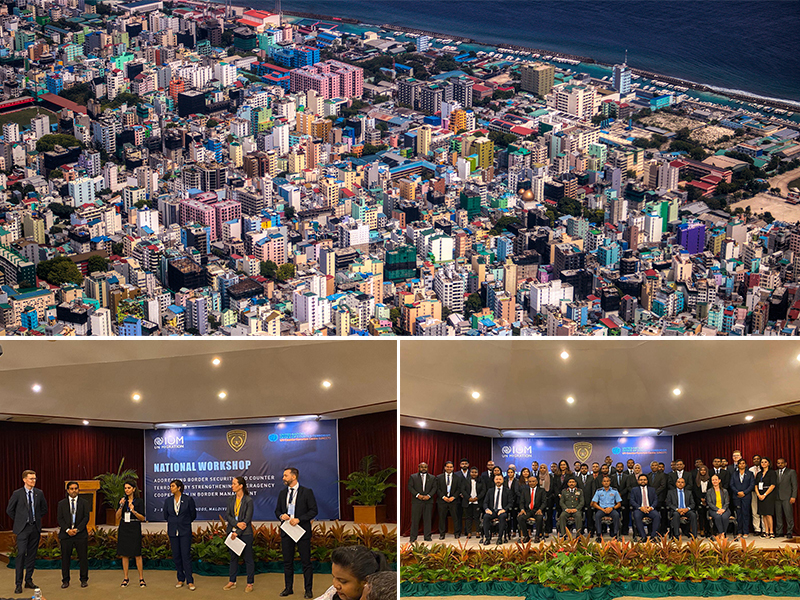Multi-agency cooperation at national and international level is key to enhancing maritime security, protecting global trade and countering transnational organized crime. A workshop (2-5 March) in the Maldives has brought together UN agencies and senior officials from various government departments, whose mandates cover counter-terrorism, migration, border security and law enforcement.
The workshop focused on best practices in border security and counter-terrorism. The aim is to bolster further policy discussions by the relevant national authorities on how security can be incorporated into the broader border and migration management framework for the country, including through data collection and management, use of pre-arrival information and passenger controls.
IMO contributed a component on maritime border security, particularly relevant to the Maldives, with its unique geography - a vast coastline and remote islands. IMO focuses on what the shipping and port sectors can do to protect themselves and others against possible maritime security threats, including acts of terrorism; and to assist the Government to implement appropriate security measures. The main focus is on preventive security through a continuous risk management process, including procedures for deterrence and threat transfer in line with IMO measures to enhance maritime security (SOLAS chapter XI-2 and the ISPS Code).
Other sessions have been delivered by the International Organization for Migration (IOM), the World Customs Organization (WCO), the UN Counter-Terrorism Centre (UNCCT) and INTERPOL. The workshop follows a joint IMO-UNODC interagency workshop on legal implementation of counter-terrorism instruments conducted in 2018 as well as technical training for the Maldivian Designated Authority conducted by IMO in 2019.
